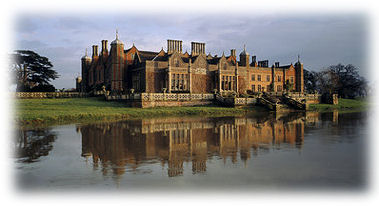Robert Mudie The feathered tribes of the British islands: 2 volumes Hand-coloured plates each volume has 24 plates assorted colour/bw (1834) William Yarrell A history of British Birds: 3 volumes 587pp, 655pp, 651pp, illustrated with 535 wood engravings (1845) Mudie was virtually self educated and one of life’s achievers. Here is an abbreviated extract from the Wikipedia entry : Robert Mudie (1777–1842) was a newspaper editor and author. From his boyhood he was an avid reader, reared mainly on the Encyclopædia Britannica. He taught himself Latin by beginning in the middle of Virgil, reading to the end, using a dictionary. He became master of a village school in the south of Fife. In 1802 he was appointed teacher of Gaelic and drawing at Inverness Royal Academy, although he knew little Gaelic. About 1808 he became drawing-master to Dundee Academy, but also soon took on the department of arithmetic and English composition. Becoming a member of the Dundee town council, he worked energetically for burgh reform. Mudie's speeches, attacking corruption on the council, led to the loss of his post as teacher of arithmetic (his drawing post was beyond the council's control). He launched two short-lived periodicals, The Independent (April–September 1816) and The Caledonian (June–October 1821). On the failure of these, in the autumn of 1821 he sold his life appointment as teacher in drawing and moved to London, as a reporter and eventually became editor of the Sunday Times and wrote for the periodicals of the day. About 1838 Mudie moved to Winchester, where he was employed by a bookseller named Robbins to write books, including a History of Hampshire (3 vols., 1838) and a stream of other topographical volumes. The enterprise failed, and Mudie returned to London, impoverished and in broken health. Mudie became a keen ornithologist and published several volumes, such as The Feathered Tribes of the British Islands (2 vols., 1834) and The Natural History of Birds (1834). Mudie wrote the greater part of the natural history section of the British Cyclopaedia (not in the Charlecote library), the text to Gilbert's Modern Atlas of the Earth (1840), and a topographical account of Selborne prefixed to Gilbert White's Natural History of Selborne (new edn, 1850). Mudie died at Pentonville on 29 April 1842, leaving his widow destitute. These volumes are still available in paperback. There are no other volumes by Mudie in the Charlecote library.
A history of British Birds by William Yarrell became the main reference for ornithologists, running into several editions. He also wrote A history of British Fishes which is in the Charlecote library. Yarrell worked for his Father’s newspaper agency as well as acquiring the reputation of being the best shot and the best angler in London, and soon also became an expert naturalist. He enrolled as a member of the Royal Institution in 1817 and he made his first publication at the age of 40 in 1825 "On the Occurrence of some Rare British Birds." This was published in the 2nd volume of the 'Zoological Journal' and he later became one of the editors as well as being elected a Fellow of the Linnean Society. He was one of the original members of the Zoological Society of London. In 1833, he was a founder of what became the Royal Entomological Society of London. There are no colour pictures in a History of British Birds but the engravings are particularly fine and were still being reproduced in books 100 years later. The lack of colour meant that the written descriptions of the colours of the feathers were more detailed than you would usually find. The only problem being a lack of standardisation of colour terms with hard to define descriptions such as broccoli-brown and wine-yellow.
,
Return to Index page |


 In
the library I have only found two books that appear to be totally devoted
to Birds:
In
the library I have only found two books that appear to be totally devoted
to Birds:



